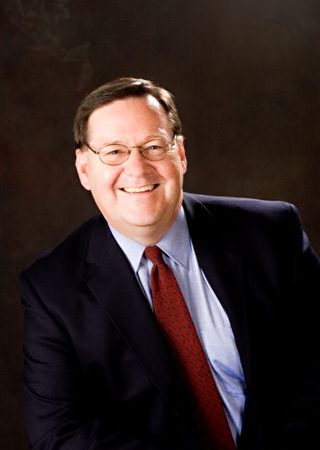Date / Time
- March 20, 2019
6:00 pm - 7:00 pm
Liberty and Justice for a Few: America Celebrates the Sesqui
Thomas H. Keels is the author of Sesqui! Greed, Graft, and The Forgotten World’s Fair of 1926. The fair was meant to be the greatest international exposition the world had ever seen. It became known as the “Flop Heard ‘Round the World.”
What went wrong with Philadelphia’s second world’s fair, staged fifty years after its tremendous success with the 1876 Centennial?
In 1916, department store magnate John Wanamaker launched plans for a Sesqui-Centennial International Exposition in 1926, a world’s fair to celebrate the 150th anniversary of the Declaration of Independence. Wanamaker believed that the “Sesqui” would restore his beloved but corrupt hometown to its rightful position as the birthplace of American liberty. Centered around the new Fairmount Parkway (today’s Benjamin Franklin Parkway), the fair would turn sooty, industrial Philadelphia into a Beaux-Arts City Beautiful.
On May 31, 1926, the Sesqui-Centennial opened in the remote swamps of the southern tip of South Philadelphia. Mayor W. Freeland Kendrick welcomed the world, including 150,000 of his fellow Shriners, to an unfinished fair of shabbily built, mostly empty structures set in a sea of mud. The disgusted Shriners traveled home and told their friends and neighbors not to bother with “Kendrick’s Karnival.” When the Sesqui closed six months later, it had attracted fewer than five million paying customers, less than half the number who saw the Centennial fifty years earlier. It had lost millions of dollars and helped to push Philadelphia into a financial depression long before the stock market crashed. And it made Philadelphia a national scandal, a city so corrupt that one political boss could kidnap an entire world’s fair.
Sesqui! Greed, Graft, and the Forgotten World’s Fair of 1926 is the story of a great American city going off the tracks, thanks to a political machine that crushed dissent, controlled nearly every civil servant and elected official, and even paid the rent on the Democratic Party headquarters. Seeing the Sesqui as a gigantic boondoggle, the machine seized control of its governing board and moved the fair from Center City to the swamps of South Philadelphia mdash; which just happened to be the congressional district of the machine’s all-powerful head, William S. Vare. Long before a single building was erected, the fair’s budget had been depleted on landfill to stabilize the marshy soil of the new site. After that, it was all downhill.
Sesqui! describes how the Philadelphia fair also became a battleground for the culture wars sweeping America in the 1920s, including Prohibition, eugenics, and civil rights. At one point, over 100,000 members of the Ku Klux Klan were scheduled to visit Philadelphia for their annual Klonvokation, marching from City Hall to the fairgrounds to burn a giant cross. Meanwhile, African Americans had to petition the White House to obtain $12,500 to finance their activities.
Filled with unforgettable characters, Sesqui! tells the compelling story of a world’s fair that crashed and burned, set against the backdrop of a changing, conflicted city and country during the Roaring Twenties.
About the Speaker
Tom Keels is the author or co-author of seven published books on Philadelphia history: Wicked Philadelphia: Sin in the City of Brotherly Love; Forgotten Philadelphia: Lost Architecture of the Quaker City; Philadelphia Graveyards and Cemeteries; Philadelphia’s Rittenhouse Square; Chestnut Hill, and Philadelphia’s Golden Age of Retail (with Lawrence M. Arrigale). Tom’s latest book, Sesqui! Greed, Graft, and The Forgotten World’s Fair of 1926, was published in 2017 by Temple University Press.
Tom is a lecturer, writer, and commentator specializing in Philadelphia history and architecture. He has addressed many of Philadelphia’s leading organizations, including the American Institute of Architects (Philadelphia chapter), American Revolution Roundtable, Chestnut Hill Historical Society, Cosmopolitan Club, Curtis Institute of Music, Franklin Inn Club, Free Library of Philadelphia, Harvard Club of Philadelphia, Preservation Alliance of Greater Philadelphia, Springfield Township Historical Society, and Union League of Philadelphia.
Tom has appeared in numerous documentaries, including several episodes of History Making Productions’ Philadelphia: The Great Experiment; “Philly Firsts” on WLVT (PBS39); and “Buried Stones, Buried Dreams,” a feature on Mount Moriah Cemetery for the Precious Places Project. He has appeared on two episodes of Mysteries at the Museum on the Travel Channel, discussing the real-life origins of the 1958 sci-fi classic, The Blob, and how a Philadelphia merchant-turned-counterfeiter nearly bankrupted the Confederacy during the Civil War. Other media appearances include Radio Times on WHYY-FM, Creatively Speaking on WRTI-FM, PA Books on the Pennsylvania Cable Network, Action News on WPVI-TV, and Good Day Philadelphia on FOX-TV. For many years, Tom was a Contributing Writer for the Rittenhouse Sq. Revue, writing monthly articles on Philadelphia landmarks and lore. His articles have also appeared in the Chestnut Hill Local, Main Line Times, Springfield Sun, Philadelphia Style Magazine, Germantown Crier, and the Journal of the Historical Society of Montgomery County. His articles on Laurel Hill Cemetery and contractor bosses can be viewed online at The Encyclopedia of Greater Philadelphia.
A confirmed taphophile, Tom has been a tour guide at Laurel Hill Cemetery, Philadelphia’s premier Victorian necropolis, for over two decades. He has conducted classes on Philadelphia cemetery history for the Bucks County Community College Historic Preservation Program, Cheltenham Township Adult School, and Mount Airy Learning Tree.
Join the Conversation
A series of informal, intimate talks given by literary and cultural luminaries, In Conversation With The Rosenbach delves into fascinating histories, intellectual curiosities, and inspiring ideas. Each program offers audience members a chance to join the conversation after the talk and share their own thoughts and questions. In Conversation With The Rosenbach is supported by a grant from the Christian R. & Mary F. Lindback Foundation.
Seating is limited; advance registration is strongly recommended.
Date / Time
- March 20, 2019
6:00 pm - 7:00 pm

